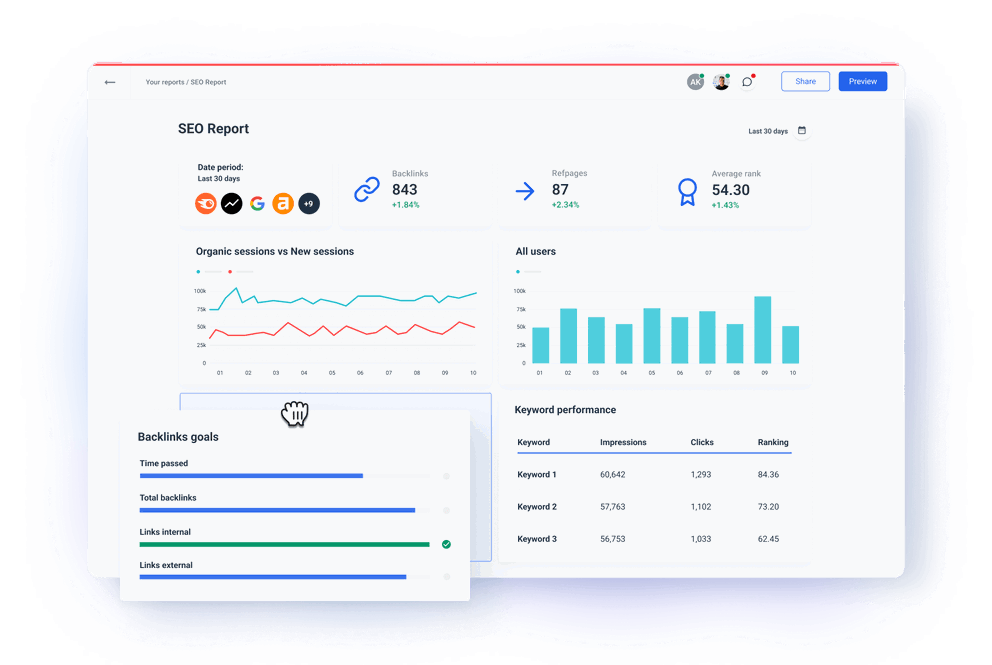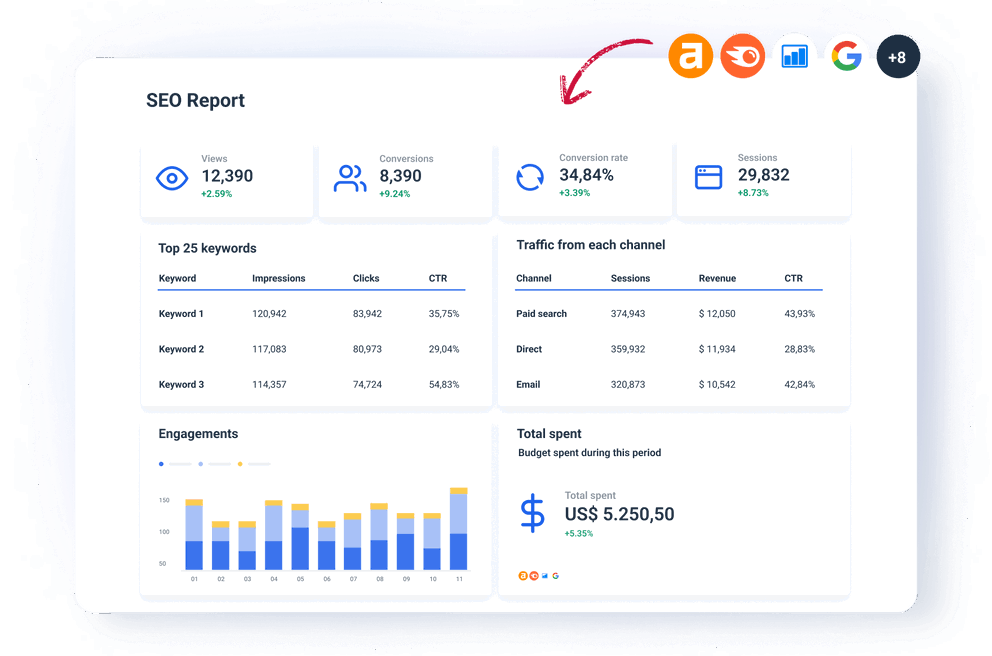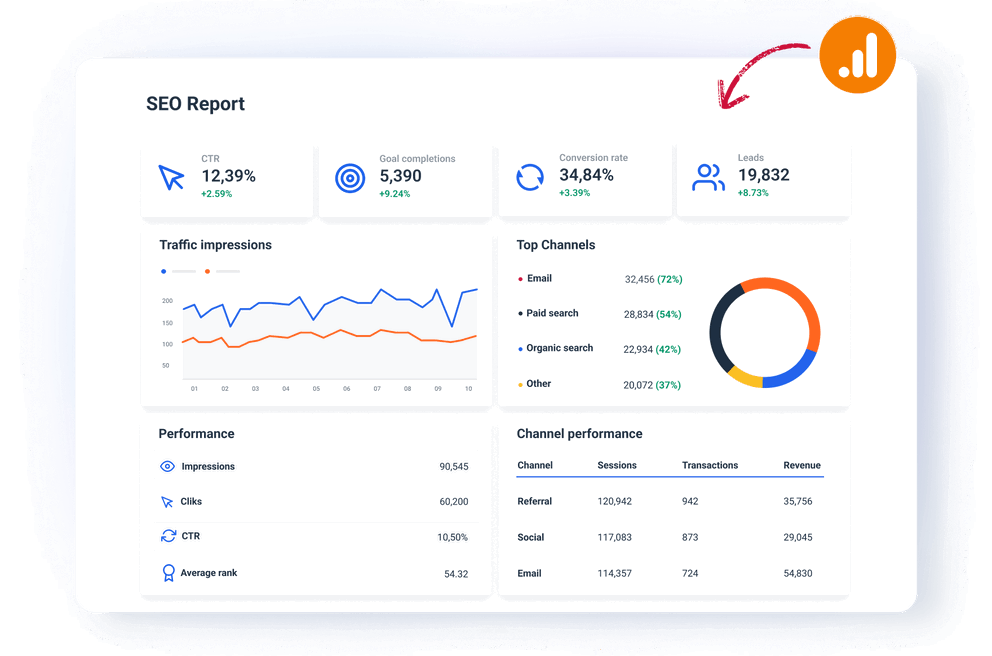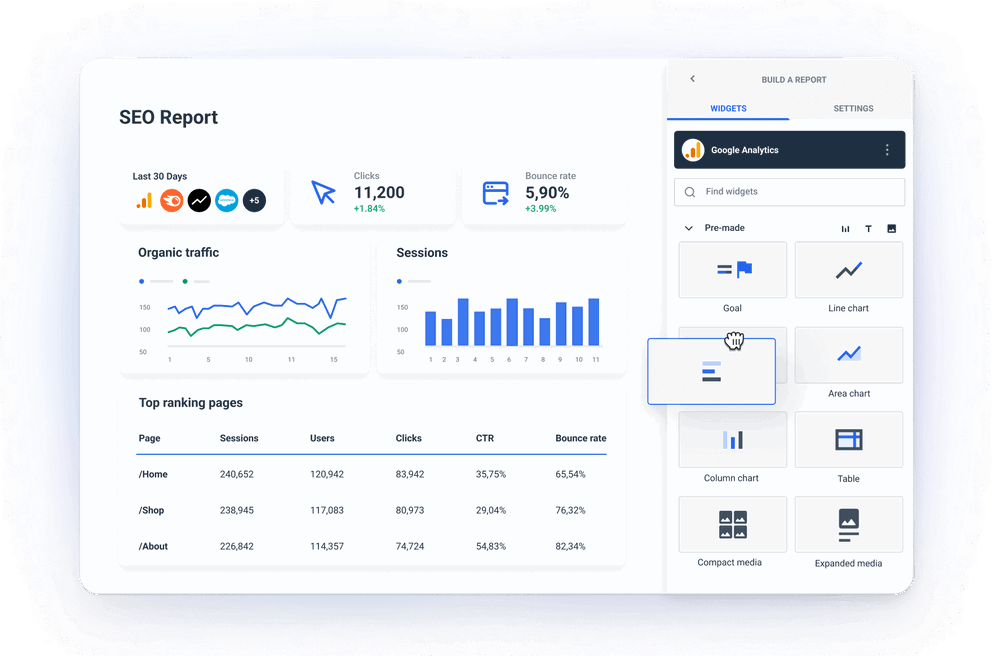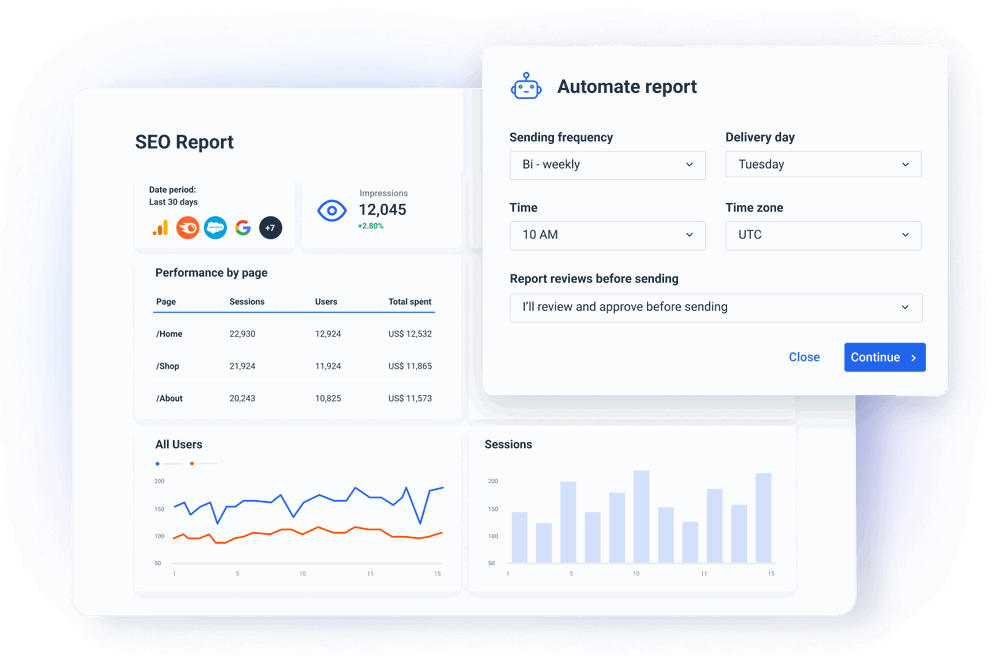What is an SEO reporting tool?
An SEO report generator tool is software for analyzing key SEO KPIs such as organic traffic, search engine rankings, referring domains, and audience behavior.
Using this data, you can optimize and improve SEO strategies for your clients—helping them grow their business.
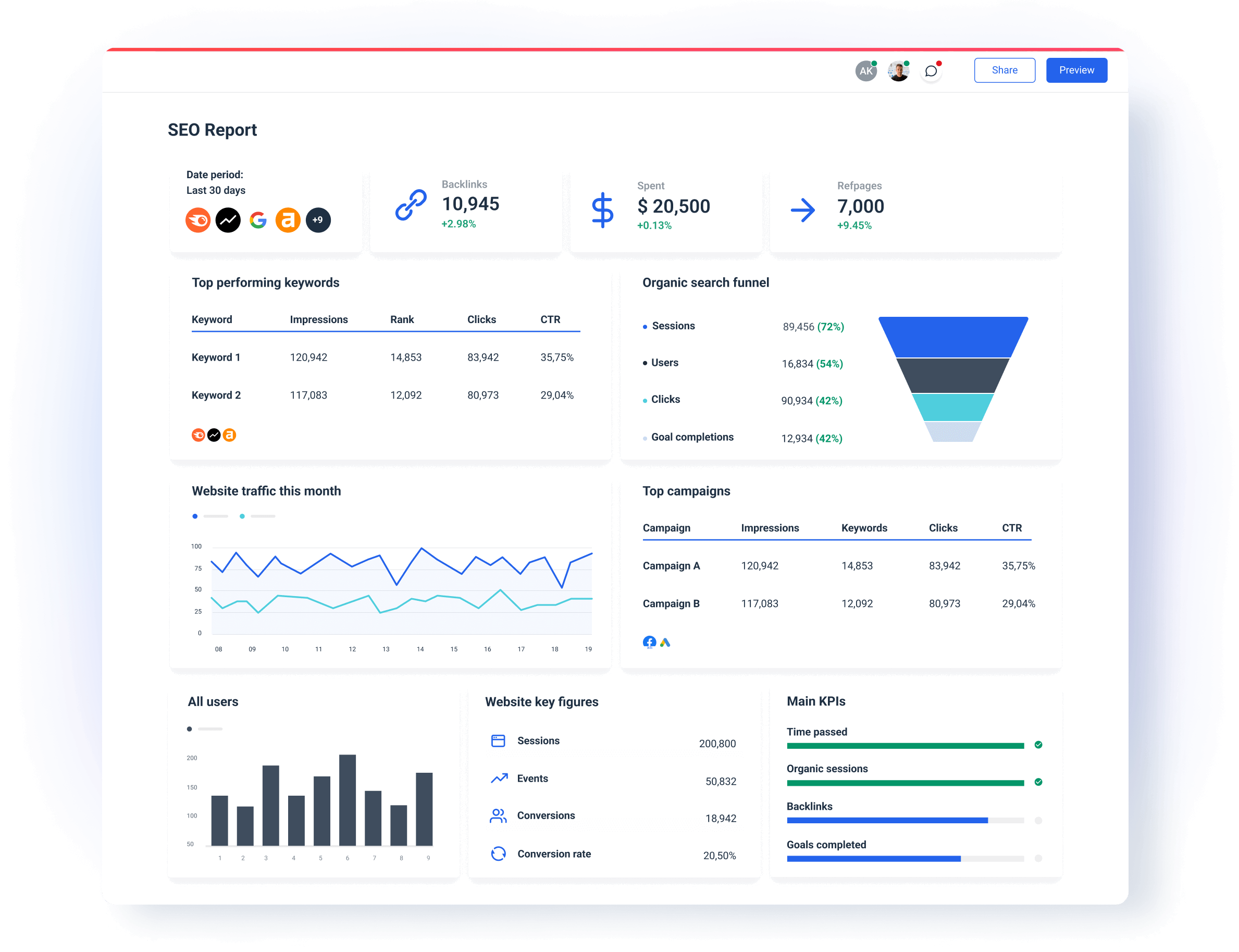
Why do you need an SEO reporting tool?
A good SEO reporting software is the backbone of a successful SEO agency.
There are many reasons agencies should invest in an SEO reporting tool for clients, but the main ones are:
1. To boost transparency
Clear, visual reports help clients actually understand what's happening with their SEO.
Real-time SEO reporting helps clients understand their data, which increases their trust in you and confidence in your strategy.
2. To improve relationships with clients
Easy-to-read reports demonstrate to clients that you’re on top of things. In the long run, this helps build trust and improve your relationship with them.
3. To get bigger budgets from old clients
When your reports show progress and ROI through clear visuals, clients are more willing to expand their work with you—leading to bigger budgets.
4. To onboard new clients based on WOM or referrals
Not all agencies take the extra steps of creating polished, client-facing reports. If you do this and they see the extra effort you put in, they can quickly turn into loyal brand advocates.
How to choose the best SEO reporting tool?
Not all SEO reporting tools are created equal. For this reason, it’s important you compare the available features and support.
This is what we recommend prioritizing:
1. Easy integrations with all SEO tools
This is important. Your SEO marketing reporting tool should integrate with all rank tracker, website audit, link building, and competitor analysis tools you use.
The integrations should include:
- Ahrefs — for backlink monitoring, domain authority, and competitor insights.
- SE Ranking — to perform in-depth keyword and site audits.
- Semrush — for keyword analysis, traffic insights, and link building.
- Google Search Console — to get real-time search visibility insights.
- Google My Business —- for local SEO performance tracking.
- SEOMonitor — to track SEO campaigns and do SERP forecasting.
- Google Analytics 4 — for insights into website performance and behavior analytics.
- AccuRanker — to do keyword rank tracking.
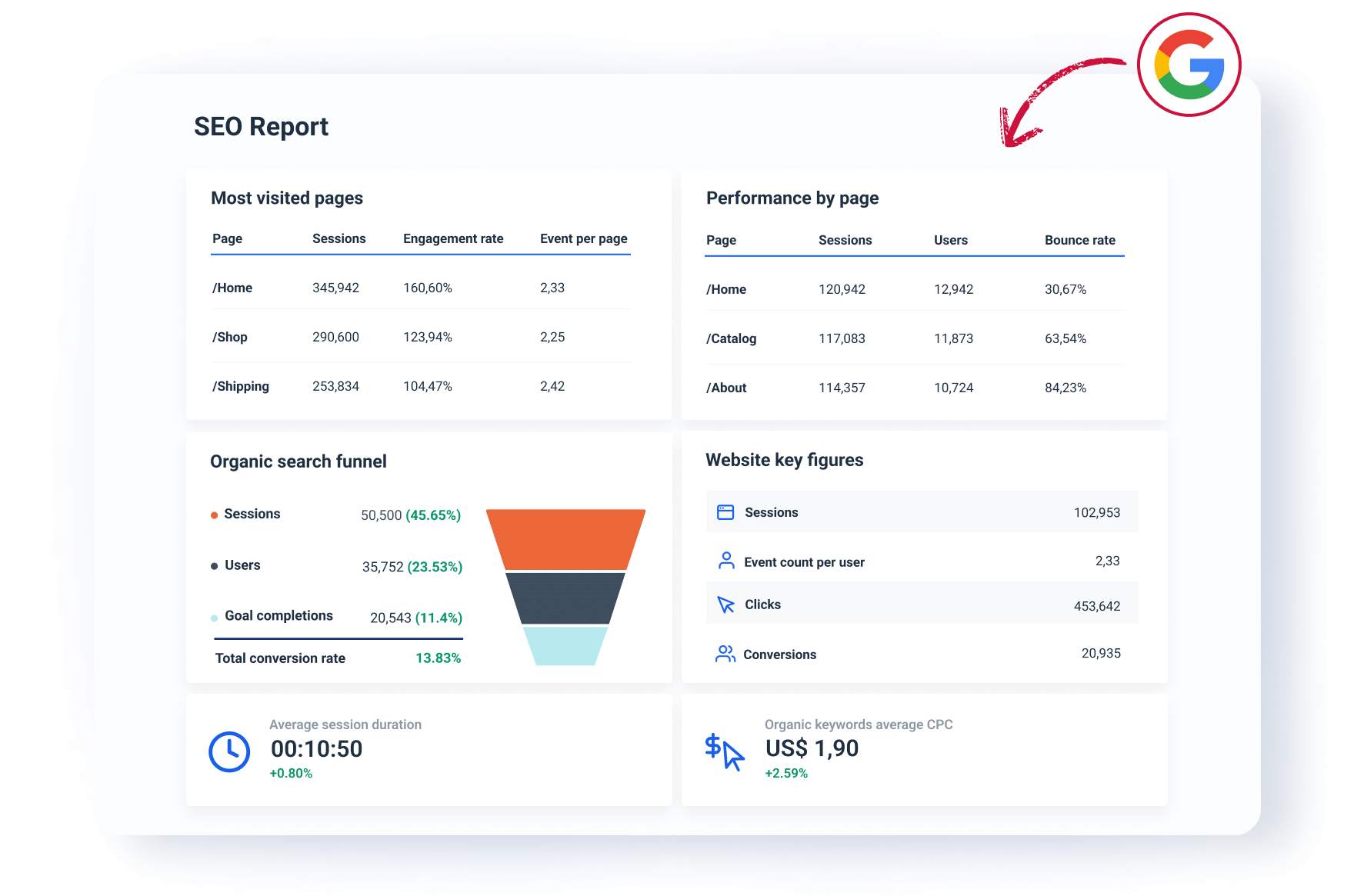
On Whatagraph, you can connect with all of these SEO tools in just a few clicks.
You can also find PPC, social media, email marketing, ecommerce, and analytics integrations for cross-channel insights.
2. Custom SEO reports & dashboards
Different clients have different goals. It’s important that your SEO reporting tool offers customizability to match the client’s specific needs.
Whether you want to create SEO rank reports, show backlink growth, or focus on local SEO performance, your tool should offer capabilities for that.
Prioritize features, such as:
- Templates for both SEO reports and SEO dashboards
- Drag-and-drop widgets, graphs, and charts to build detailed reports
- Automated data connections that you can add easily
- Intuitive interface that requires minimal training
- White labeling, such as adding custom domains, client logos, and branding
- Data blending for creating custom metrics
Whatagraph gives you complete control and offers all of the above. We’re not talking about a few simple color changes—we genuinely mean flexible reporting that matches your client’s needs.
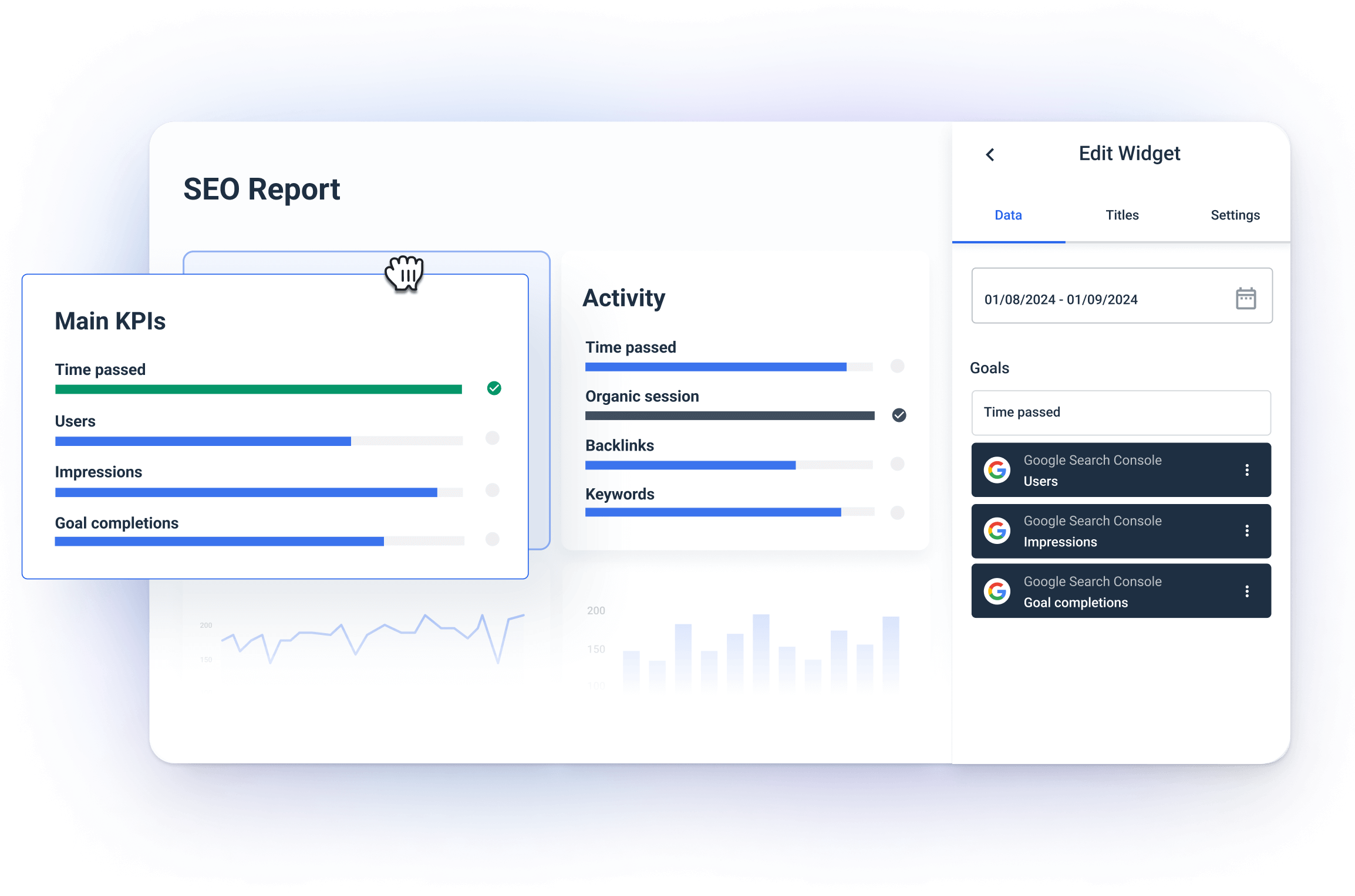
3. Proactive performance tracking and AI insights
Manually describing campaign performance to clients takes a lot of time. Luckily, there is a better way.
With a few of the top AI SEO tools, you can create automated performance summaries based on your data.
One of these tools is Whatagraph. Our AI-generated summaries solve the age-old problem of staring at a blank screen, trying to explain what the data means.
You get a performance summary explaining what's happening in your campaigns, what's changed, and what to do next.
Plus, you can always edit these summaries further to add a bit of a human touch.
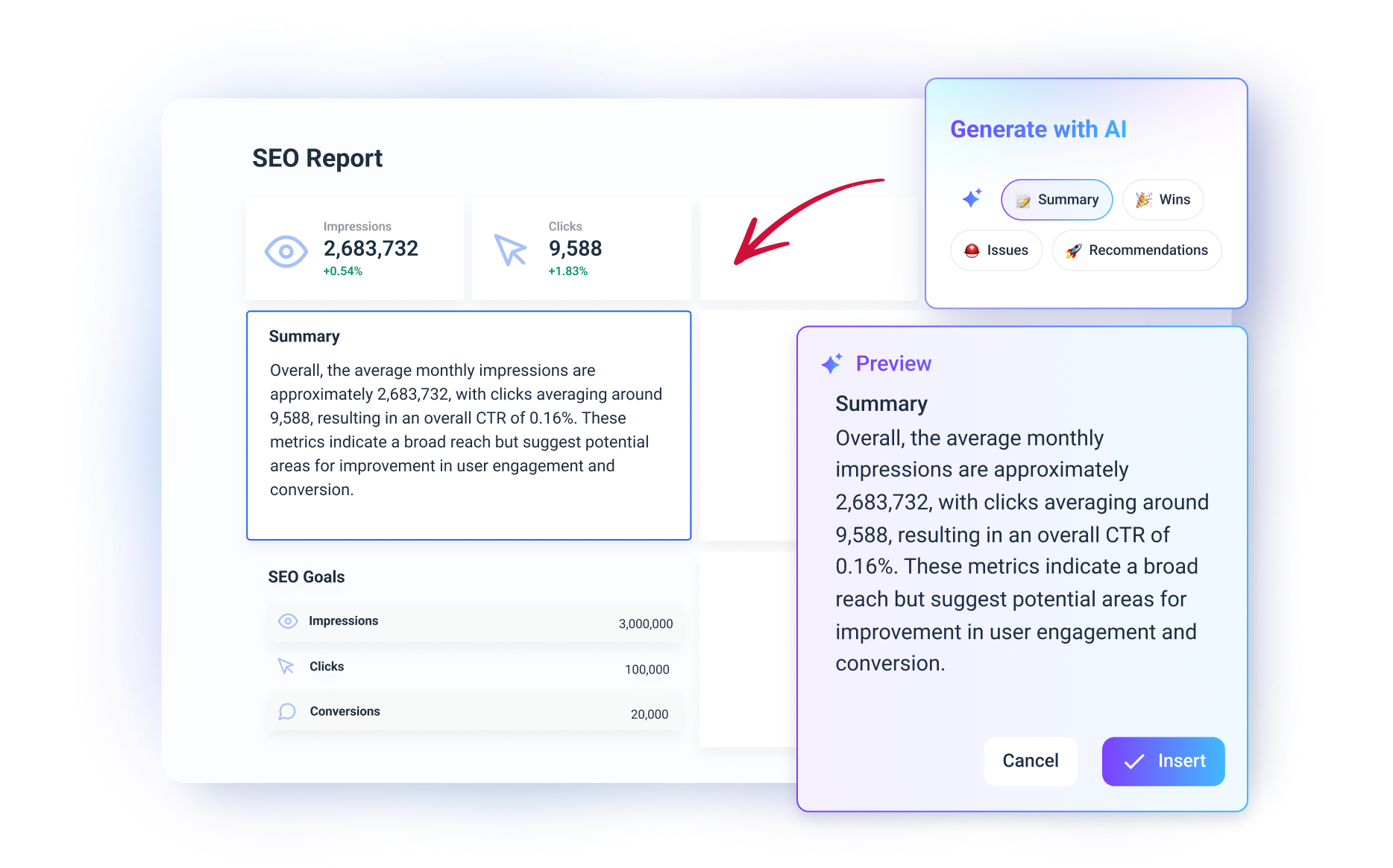
4. Reliable customer support
AI features help you get insights into your data, but what if you need help using the SEO reporting tool?
No matter how intuitive an SEO reporting tool is, there might be times when you need help from a real person.
It’s crucial that there is support you can get in touch with at any time.
At Whatagraph, you can reach out to us via live chat and email on our website. No matter your plan, you get access to:
- Live chat support with under 4-minute first response times
- A dedicated Customer Success Manager
- Personalized onboarding
This means you don’t have to spend time troubleshooting alone—there is support available at all times.
How can I track the performance of my SEO efforts using a reporting tool?
The easiest way to track your SEO performance is to use a dedicated SEO reporting tool, like Whatagraph.
On Whatagraph, you can start tracking SEO performance in four simple steps:
1. Connect your SEO data sources
The first thing you wanna do is to connect to the SEO channels you wanna pull data from.
On Whatagraph, you can do this in a few clicks. On our dashboard, select your data source, authenticate with your login, and the data starts coming in.
2. Organize your data
This is an important step. Once you’ve added your data sources, the next step is to organize your data so it’s easier for your clients to understand.
On Whatagraph, you can:
- Creating data blends from multiple sources
- Standardizing campaign, metric, and dimension names
- Group data from multiple campaigns into regions or tiers
- Create custom calculations and formulas (for example, show clicks across multiple campaigns)
All of this means you can truly customize the way data is presented in your reports.
3. Visualize the data
Once your data is organized, it’s time to visualize it in a report.
You’ve got three ways to do this:
- Use our premade SEO reporting and dashboard templates
- Start from a blank template
- Use a smart builder
For most, using our pre-made online SEO report templates is the easiest way to get started.
You can always edit the reports further with our pre-made widgets or by building your own. Resize them however you want and insert or delete lines.
4. Share the reports
Last but not least, you need to share your analytics SEO report with clients or your team.
There are three ways to do this in Whatagraph:
- Schedule an email and send the report on a regular cadence (e.g., weekly)
- Create a report link and share it with anyone you’d like
- Export as Excel or CSV
You can also transfer data to BigQuery and Looker Studio for further visualization.
